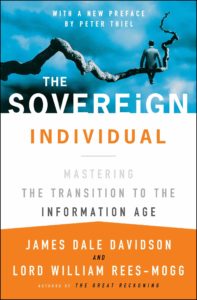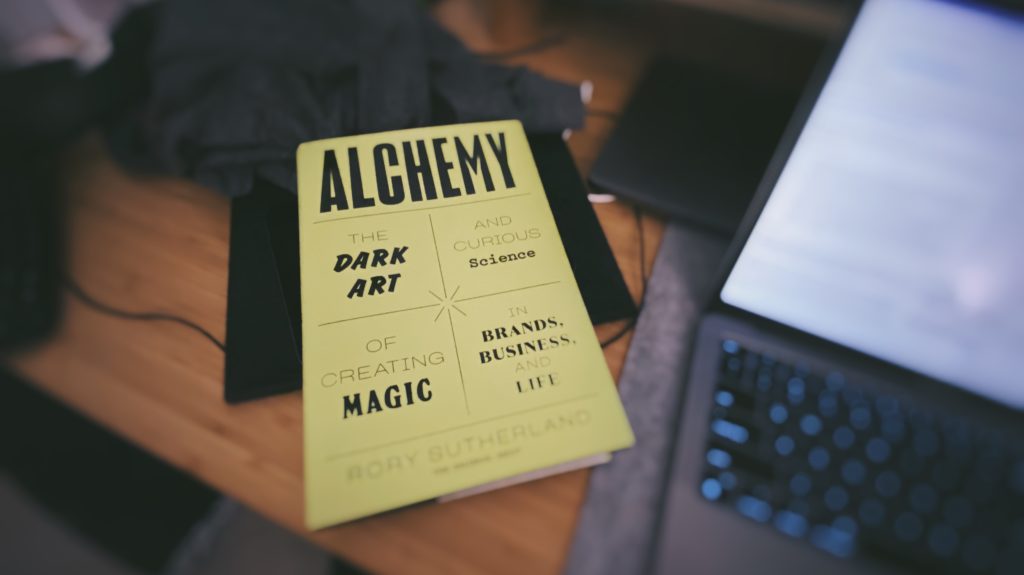The Sovereign Individual
I’m finally getting to parts about how tech will change things. They wrote the book in 1996 explicitly to predict how the next few decades will shake out. So there’s some of the fun of reading old sci-fi books, but in a different way. Accuracy is more important here than finding entertaining angles.
It reminds me that sci-fi and stand-up have the same process: take some subtext and then stretch it out to its extreme.
But, again, this isn’t a sci-fi book so it’s more about explaining the foundational subtext of the future.
The first few chapters set up the relationship between violence and government. That relationship is essential to how technology shapes the future. Their hunch: technology will change that relationship entirely.
Governments could tax companies and individuals. Much harder if the company is a few people willing to pick their laptops up and move to another country. And their payments aren’t tied to that nation’s fiat system.
Workers could strike, take a factory hostage, and get higher pay. Much harder when most work is knowledge work done remotely in virtual spaces.
One interesting point is that some skilled work really wasn’t:
One of its pretenses was the idea that factory jobs, particularly in the middle of the twentieth century, were skilled work. This was untrue. Most factory jobs could have been performed by almost anyone capable of showing up on time. They required little or no training, not even the ability to read or write. As recently as the 1980s, large fractions of the General Motors workforce were either illiterate, innumerate, or both. Until the 1990s, the typical assembly-line worker at GM received only one day of orientation before taking his place on the assembly line. A job you can learn in a single day is not skilled work.
Today, there’s some pretense that technology jobs are skilled work. That will become less and less true as tooling improves. As an example, take setting up an online store and compare it to what it would take in 1996, when this book was written.
Or take a college freshman and give them a day of Canva training. Then throw them in the Delores back to 1996 and yadda yadda how they still have their laptop and Canva access in that time. They’d be able to replace many designers on a marketing team.
GPT-3 doesn’t replace a copywriter, but it can augment someone without the specialty to do a decent job. Or for one copywriter to multiply their output to fulfill needs for multiple companies.
Programming itself continues to require less skill for equivalent tasks through the power of open source tooling. The tasks get larger and the need for programmers still outpaces the decrease in skill reduction.


